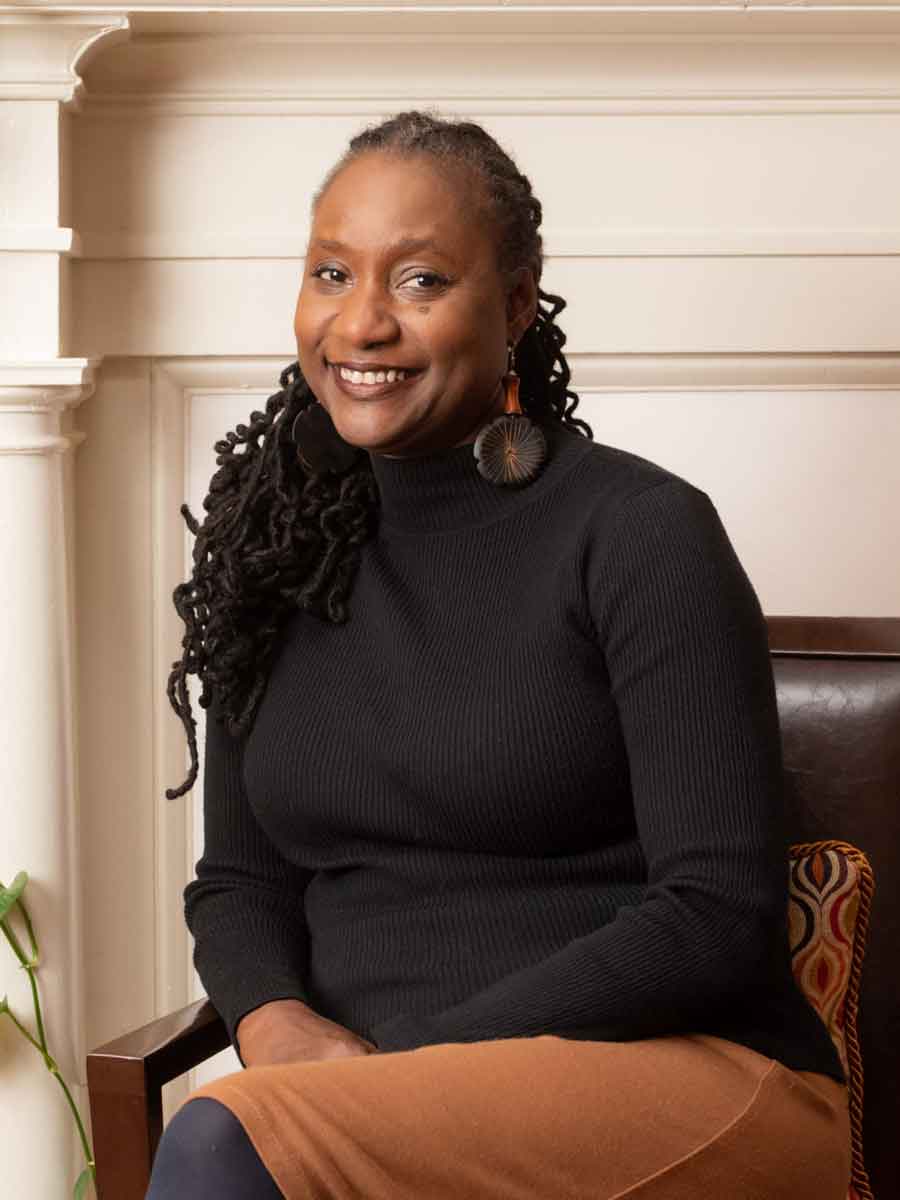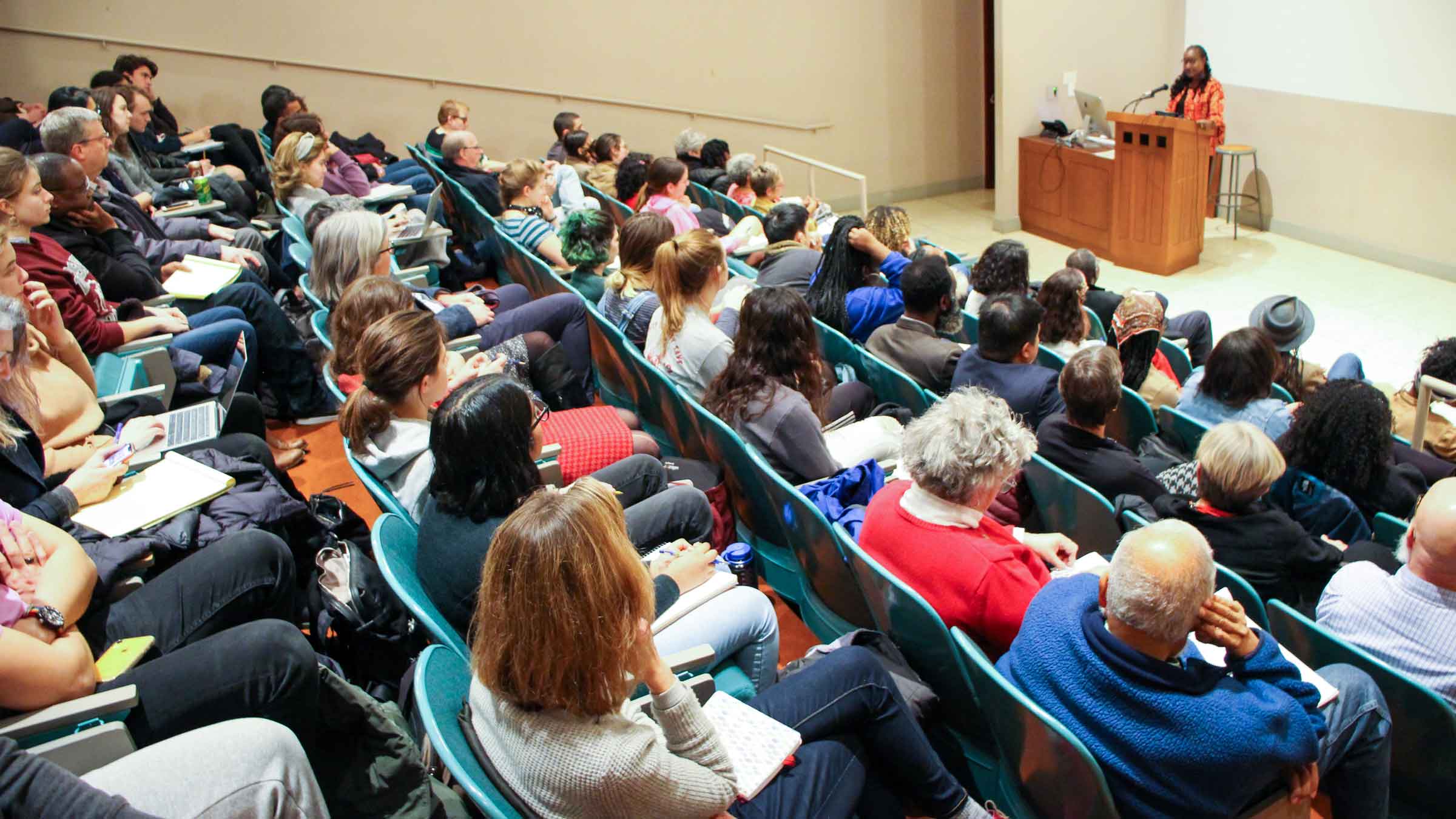Speaking Across the Centuries That Connect African Americans to Africa
Speaking Across the Centuries That Connect African Americans to Africa
Nemata Blyden describes her latest work, African Americans and Africa, as a small book with a big topic. “It’s not a long book,” said Blyden, Associate Professor of History and International Affairs at George Washington University, “but it covers more than 400 years of history.”

Blyden took part in Vassar’s observance of Black History Month by delivering a lecture, “African Americans and Africa: Speaking Across the Centuries,” on February 5 in Taylor Hall. She spoke about the four centuries that have passed since slaves first came from Africa to the United States and the complex and varied connections African Americans of today have with the African continent.
“My scholarship is personal,” Blyden noted in an interview before her lecture. She said her mother was born and raised in Massachusetts, but her father is of Caribbean ancestry, and his family immigrated to Sierra Leone, where Blyden has lived part of her life herself.
Blyden said her book chronicles the slave trade that began bringing Africans to the United States early in the 17th century, the most recent wave of African immigration to the United States over the past 20 years “and everything in between,” drawing the myriad connections that have linked Africa and African Americans.
She said she often reminds her students that the story of slavery doesn’t start when slaves arrived in this continent. “When they came here, they brought their culture—their music, their cuisine, their religion—with them,” Blyden said. “Subsequent generations of slaves may have lost some of the tangible connections with their African roots, but those connections remained in their consciousness and their imagination. Jazz is considered a uniquely American art form, but it has its roots in Africa.”

While most people know that the West African country of Liberia was founded by former slaves after the Civil War, the flow of people between Africa and the United States has “waxed and waned” throughout history, Blyden said. And since DNA testing is now able to identify more definitively where families’ ancestors are from, African Americans can now determine which part of Africa is most significant to them.
Blyden said she wrote her book in part because she is often surprised by how little her students have learned learn about their heritage in high school. “Sadly, not many of my students know anything about their history when they come to my class,” she said.
While many of her students are eager to learn more about where their families came from, they often have difficulty coping with the details of the horrors of slavery, Blyden said.
“One of my students recently told me she had a hard time getting through the text,” she said. “But I told her, ‘Yes, but someone endured and lived through it and became part of a family that exists today.’”
